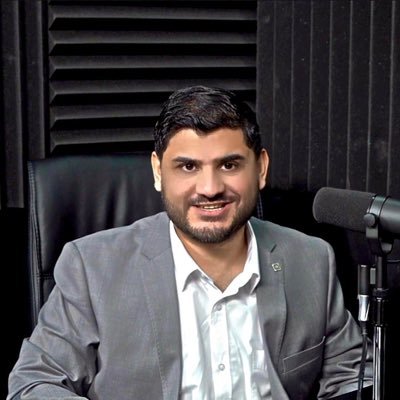U.S TO GO TO WAR IN GAZA - ETHNIC CLEANSING OF PALESTINIANS
The Spaces highlights the controversial news around the potential US involvement in Gaza, driven by the idea of occupying the land as proposed by Donna Trump's administration. It covers the international reactions, including strong opposition from countries like France, China, and Germany, who warn against the ethical and legal implications of displacing Palestinians. Jordan and Cuba express clear stances against this possible occupation. Moreover, discussions illuminate Trump's polarizing influence, as opinions diverge on the interpretation of 'America First' philosophy. The deliberations encapsulate a complex interplay of political maneuvering, humanitarian concerns, and geopolitical interests tied to the contentious topic of territorial and administrative control of Gaza. The conversation also highlights larger international dynamics involving the UN and the impact of such decisions on global political structures.
Summary of Twitter Space Recording
Tensions around Gaza and Palestine
In this Twitter Space discussion, participants delve into ongoing geopolitical tensions surrounding Gaza and Palestine, focusing mainly on the United States' proposed involvement and the potential consequences of such actions.
Donald Trump's Statements and International Reactions
Donald Trump’s Proposal: There are discussions about Donald Trump's statements regarding the potential US control over Gaza, suggesting a shift in policy that could result in significant geopolitical ramifications. This includes ideas about the displacement of Palestinians, which was met with significant international backlash.
Global Condemnation: Various world leaders responded to Trump’s statements. For instance, French authorities labeled the proposal a serious violation of international law, pushing for a resolution that involves the Palestinian Authority. Similarly, Xi Jinping condemned these plans, asserting that control should remain with Palestinians.
Middle Eastern Responses: Leaders from the Middle East, including the King of Jordan and officials from countries like Oman, publicly rejected any plans that could lead to displacement or further settling of territories, viewing them as antithetical to peace.
Human Rights and Legal Perspectives
International Law Violations: Several participants discussed the legality of Trump’s proposed actions, emphasizing violations against international law. Leaders from Germany and Brazil were particularly vocal in their condemnation.
UN and Human Rights: The United Nations and other international bodies were cited as critical entities in addressing these potential violations. However, Trump's withdrawal from various UN bodies was criticized as undermining international legal frameworks.
Domestic Implications in the US
MAGA Movement’s Stand: There was significant discussion about the MAGA movement's support for Trump and whether this aligns with traditional America First policies. Some argue this expansionist approach contradicts the foundational values of focusing on domestic issues.
American Political Dynamics: The space discussed how these international policies could affect domestic politics, including the risks associated with putting American troops on the ground for issues perceived as non-critical to US national security.
Sociopolitical and Humanitarian Consequences
Potential Humanitarian Crisis: Trump's plan could lead to a humanitarian crisis, with forced displacements and uncertain futures for thousands of Palestinians. Concerns were raised about the adequacy of support and resources if mass relocation were to occur.
Public Perception and Media Narratives: The media's role in framing these developments was criticized, especially in how different narratives are pushed regarding the conflict dynamics and humanitarian implications.
Broader Regional Implications
Impact on Peace Initiatives: There were discussions about how these postures could derail ongoing peace initiatives in the region, further complicating the goal of a two-state solution and broader Middle Eastern peace efforts.
Arab Nations' Complex Role: The role of neighboring Arab countries, including Saudi Arabia and Egypt, was examined, with skepticism about their public stances and potential behind-the-scenes agreements.
Concluding Thoughts
The Twitter Space serves as a platform for passionate discourse on a complex and multifaceted geopolitical issue, reflecting deep concerns about humanitarian, legal, and political repercussions of potential international actions in Gaza. The discussion underscores the high stakes of proposed policies and the critical need for careful, legally sound approaches grounded in international cooperation and respect for human rights.
